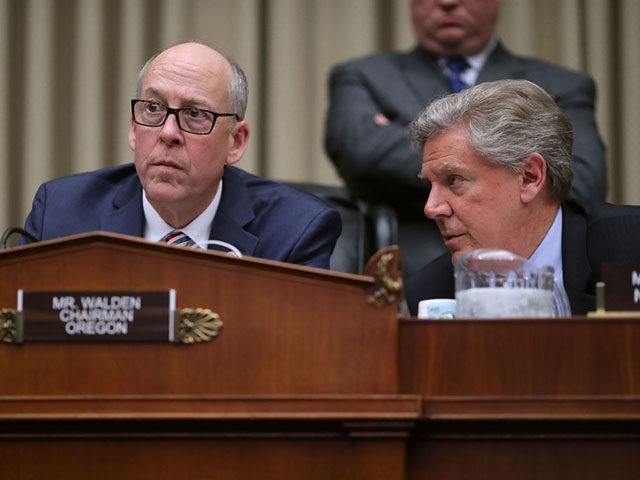House Energy and Commerce Chairman Frank Pallone (D-NJ) and ranking member Greg Walden (R-OR) launched an investigation on Monday into private equity companies’ role in surprise medical bills.
Pallone and Walden sent letters to KKR & Co. Inc.; The Blackstone Group; and Welsh, Carson, Anderson & Stowe requesting information and documents relating to the firms’ ownership of private physician staffing and emergency transportation companies, which new studies have found serve as a leading source of surprise medical billing.
Surprise medical billing has become one of the leading issues for healthcare reform. Surprise medicals bills occur when a patient sees a doctor out of his health insurance network and that doctor bills the patient for the charges that the insurer will not pay. When the health insurance company and the health provider cannot resolve the dispute, they often foot the bill onto the patient.
Pallone and Walden wrote:
We write to request information regarding [name of private equity firm] ownership, policies, and practices as it relates to third-party medical providers. We are particularly interested in your firm’s relationship with any physician staffing companies and emergency transportation companies. In recent years, the Committee has heard countless heart-wrenching stories from insured individuals who have received thousands of dollars in medical bills after inadvertently receiving care from out-of-network providers.
Pallone and Walden cited research from the American Enterprise Institute (AEI) and the Brookings Institution that surprise medical bills are frequently correlated with services provided by an out-of-network emergency physician or ancillary clinician — such as a radiologist, anesthesiologist, pathologist, etc. — at an in-network health facility.
Recent press reports have found that private equity firms have increasingly bought physician staffing companies and private emergency transportation companies that contract with hospitals. Pallone and Walden’s letter references KKR & Co. Inc.’s and The Blackstone Group’s acquisitions of EmCare and Team Health, two of the largest emergency department outsourcing firms in the United States.
Evidence indicates that these physician staffing firms charge significantly higher in-network rates than their counterparts, thereby driving reimbursement upwards as they enter into staffing arrangements with hospitals. We are concerned about the increasing role that private equity firms appear to be playing in physician staffing in our nation’s hospitals, and the potential impact these firms are having on our rising health care costs.
A Kaiser Family Foundation (KFF) poll released Thursday found that Americans overwhelmingly want Congress to solve surprise medical bills. The survey found that 78 percent want Congress to end surprise medical billing, and 56 percent of those polled said that banning surprise medical bills should be a top healthcare priority for Congress.
Pallone and Walden’s investigation into the private equity firms’ involvement in surprise medical bills comes as the firms have reportedly launched a $28 million-plus ad campaign opposing Congress’s efforts to curb surprise medical bills.
Sean Moran is a congressional reporter for Breitbart News. Follow him on Twitter @SeanMoran3.

COMMENTS
Please let us know if you're having issues with commenting.